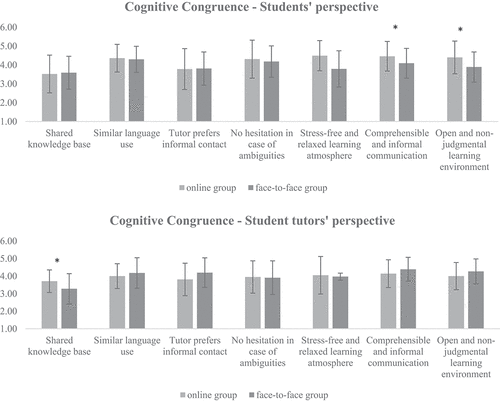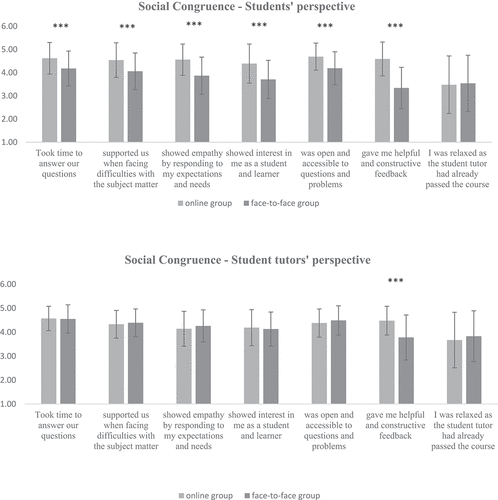Figures & data
Figure 1. Study design and process of the study. At the start of the course, the first learning success check took place. One week later, the students participated in the online practice unit (60 min), followed by the second learning success check. After two to three weeks, the third learning success check took place.

Table 1. Cognitive congruence from the students’ and student tutors’ perspectives in online student tutorials. Items that differ significantly are marked with *. The data were collected in summer term 2021 at the Medical Faculty of the Eberhard-Karls University Tuebingen, N = 128 medical students participated.
Table 2. Social congruence from the students’ and student tutors’ perspectives in online student tutorials. Items that differ significantly are marked with *. The data were collected in summer term 2021 at the Medical Faculty of the Eberhard-Karls University Tuebingen, N = 128 medical students participated.
Figure 2. Cognitive congruence from the students’ and student tutors’ perspectives in comparison to the face-to-face group. Items that differ significantly with p < .05 are marked with *. The data were collected in summer term 2021 at the Medical Faculty of the Eberhard-Karls University Tuebingen, N = 128 medical students and five student tutors participated.

Figure 3. Social congruence from the students’ and student tutors’ perspectives in comparison to the face-to-face group. Items that differ significantly with p < .001 are marked with ***. The data were collected in summer term 2021 at the Medical Faculty of the Eberhard-Karls University Tuebingen, N = 128 medical students and five student tutors participated.

Table 3. Medical students’ and student tutors’ results of cognitive and social congruence compared between the face-to-face (N = 676, collected in 2018 at Medical Faculty of University of Tuebingen) and online setting (N = 133, collected in 2021 at Medical Faculty of University of Tuebingen) based on the single items.
